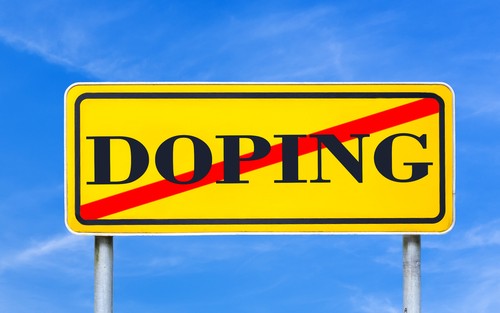“Say It Ain’t So, Joe.”
“Say it ain’t so, Joe.” So goes the legendary question asked of ‘Shoeless Joe’ Jackson after he was accused of being part of the ring of Chicago White Sox players who ‘threw’ the 1919 World Series to the Cincinnati Reds. Before being banned for life from baseball for his actions, Jackson was, at the time, among the game’s super stars with a lifetime batting average of .356 in a short 13 year span. He hit an incredible .408 in 1911, his first full major league season. No one wanted to believe that he could have been involved.
And, then, there are the likes of Alex Rodriguez, Barry Bonds, Roger Clemens, Rafael Palmeiro, Sammy Sosa and Mark McGuire, all with career reputations fatally tarnished by banned drug use.
Cheating isn’t unique to baseball. Lance Armstrong, a cancer survivor, who, subsequently, went on to win seven consecutive Tour de France races was proclaimed to be one of the greatest athletes of all time. After repeated victories in a most grueling, punishing and physically taxing sporting event, Armstrong fell into utter disgrace when it was disclosed that he used illegal and banned drugs to enhance his performance. His titles, purse money, and reputation were stripped from him.
Football also has experienced its share of illicit incidents. The reigning Super Bowl head coach, Bill Belichick, as well as the preceding winning Super Bowl coach, Pete Caroll have both been sanctioned for violating their governing rules. Sean Payton, the coach for another Super Bowl championship team, New Orleans Saints, was suspended for a year for encouraging bounties on injuries to opposing athletes.
NBC’s prime news anchor, Brian Williams, has recently been recently suspended for six months for falsely embellishing stories about his war-zone news coverage. No wonder, then, that the U.S. Little League World Series Championship Team of 2014, Jackie Robinson West Little League Team, was stripped of its title for breaking the rule of residency for its team members.
Even the Highest of Achievers can be Tempted…
What strikes me, most profoundly, in all of these cases, is that without exception, each and every participant was already a superstar in his own right. They all had achieved so much good in their chosen field of expertise that cheating seemed unnecessary. Even without the added use of performance enhancing drugs, resorting to breaking the rules of the game, or using gratuitous hyperbole in recounting war stories, these people would have found their way to the pinnacle of greatness.
The baseball players all had Hall of Fame talent, which was unfolding in each of their major league careers. They contributed mightily to their team’s success. They were already dominant players, before they bent the rules. The football coaches were among the most innovative, consistent and inspiring coaches ever to lead football teams. What little advantage that they gained for their teams, through their indiscreet actions, was minuscule, compared to the indelible stain that they must now carry on their names.
Brian Williams didn’t need embellishment of his already distinguished broadcasting career to assist his rise to the top. The Little League team had an enormous amount of grit, determination, and raw talent. Nobody knows how far that they would have gone without bringing in teammates from outside their boundaries.
We’re All Human
Every one of us has committed indiscretions of which we are not proud. We all have fallen short in our behavior at some time, or times, in our lives. We are human, just as all those public figures cited above.
Who are we, then, to judge their behavior? Is it ever morally, or socially, acceptable to break rules, laws, or regulations for any reason? Is there any difference between them and the rest of us?
Are we any better than the fallen famous? Absolutely not!
Society, and all of its subsets, governs itself with laws, rules, and regulations. Each culture has its own mores, which guides its citizens. Without these guidelines and strictures in place, chaos would reign and only the very strongest among us would survive. Everyone else would be enslaved and subservient to the powerful. Democratic societies function at their best, when everyone adheres to the laws, rules, and regulations that they, themselves, have established. No institution, person or entity should be exempt, or excused, from these regulations.
Setting Corporate Limits
Businesses that encourage or allow cheating, or that ignore industry regulations, because the rules make it harder for them to accomplish their goals, are just as guilty as a coach who encourages bending the rules in a competitive game. Employees who cheat are hurting their co-workers, their employers, their customers and themselves.
Any advantages gained by cheating are usually only marginal, at best. The average company or employee’s performance doesn’t significantly benefit from illicit behavior, but they do experience a higher degree of risk of their activity being found out. High performing companies have the least to gain, but the most to lose, in operating outside of the accepted norm. When exposed by regulators, customers, employees, or co-workers, the damage to their reputation becomes indelible. No amount of subsequent good works can ever fully eradicate the self inflicted blemishes.
How do you fend off the temptation to skirt the rules? The best way is to have a detailed plan, a core of dedicated managers who understand the objectives, ongoing training programs for all employees, and the inspiration to solve any problem or obstacle that blocks your progress within the boundaries and guidelines established by society. Sometimes, that requires the assistance of lawmakers to modify or change unfair regulations; sometimes, it means reaching into your moral fabric to do the right thing.









